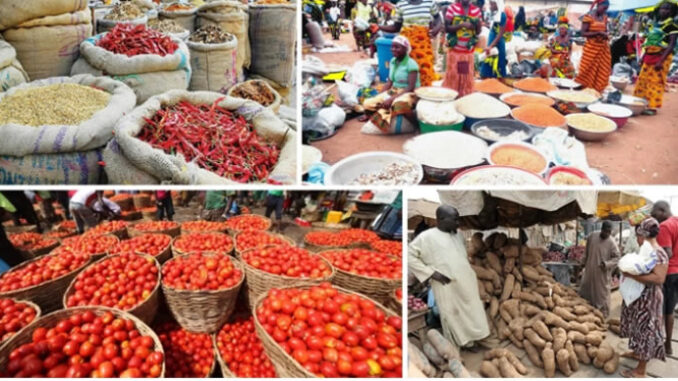
ECONOMIC hardship is not subsiding. According to a fresh note by the Abuja Chamber of Commerce and Industry, the persistent hike in food prices is worsening poverty levels. ACCI President, Emeka Obegolu, says the situation affects small-scale businesses adversely, adding that basic meals are becoming unaffordable to most citizens. He said the surge in prices of essential food items such as rice, beans, cassava flour, tomatoes, pepper, and onion has aggravated the plight of the average citizen, rendering basic meals increasingly unaffordable for many households. This is a harsh reality. The government should intervene before the country implodes.
For far too long, Nigerians have been under torment by the astronomical rise in the prices of basic foods and services in the marketplace. The steep prices have battered the purchasing power of citizens, leading to an increase in poverty, and an unpalatable cost of living. With food as a primary resource for human survival, the disruption caused by rising food inflation has further decimated their low wages. The government at every level should undertake tangible programmes to defeat hunger in the land.
The National Bureau of Statistics revealed that food inflation rose to 40.66 per cent in May. This was as the cost of food rose by 61 per cent from 25.25 per cent in June 2023 to 40.66 per cent in May, highlighting a steady rise.
At 87 million people, the World Bank said Nigeria’s poverty rate hit 38.9 per cent in 2023. This is the second highest in the world behind India’s. A 2022 survey by the NBS said 133 million Nigerians live in multidimensional poverty.
Undoubtedly, the country remains food insecure. While UNICEF stated that 25 million Nigerians are at high risk of hunger, it is projected that 31.5 million citizens may face acute hunger between May and August 2024. The global agency attributes the situation to insecurity, climate change, inflation, and rising food prices.
The 2023 Global Hunger Index said Nigeria’s hunger level is “serious.” Nigeria ranks 109 out of 125 countries with a score of 28.3 per cent in the hunger index.
In recognition of the hardship brought by hyperinflation, the Federal Government, this month, released 42,000 metric tonnes of corn, sorghum, and millet to salvage the suffering of vulnerable households. In Lagos, the state government opened 42 hubs to buy foods at subsidised rates on Sundays. These interventions help but only scratch the surface.
First, without adequate security, Nigeria cannot have food sustainability. The country is grappling with banditry, wanton killings, kidnapping, criminality, Islamic terrorism, and violent Fulani herdsmen attacks on farmers.
Consequently, farmers have abandoned their farmland for fear of bandits and herdsmen, contributing to food shortages nationwide. In March, the Cocoa and Plantain Farmers Association of Nigeria said that despite the presence of security operatives, many farmers have abandoned their farmland due to incessant killing, kidnapping, and destruction of farms.
Insecurity is rampant in Benue, Plateau, Adamawa, Nasarawa, and Borno, where violence plagues the states often regarded as Nigeria’s food belt. In Niger, Kaduna, Katsina, and Zamfara, bandits and terrorists hold sway, collecting levies or tributes from farmers before they can plant or harvest their crops.
SBM Intelligence said 2,134 persons were killed in the first quarter of 2024 under President Bola Tinubu. About 150 villagers were massacred by bandits in Bokkos and Barkin Ladi local government areas in Plateau State during the Christmas festivities.
The Federal Government, which had earlier stated that it would collaborate with states to reduce the number of taxes from over 60 taxes to nine, should unveil its plans quickly.
To ensure food security, the police, and other security agencies must be in the driver’s seat of Nigeria’s security architecture.
Nigeria should explore efficient and successful agriculture models within and outside the continent to reduce its high food inflation.
END

Be the first to comment